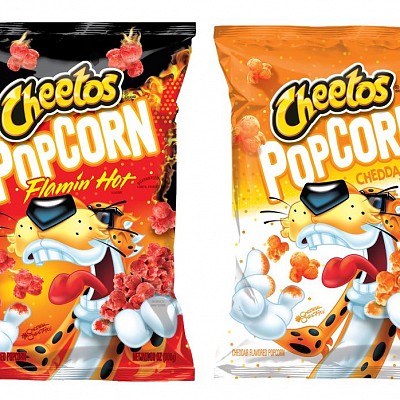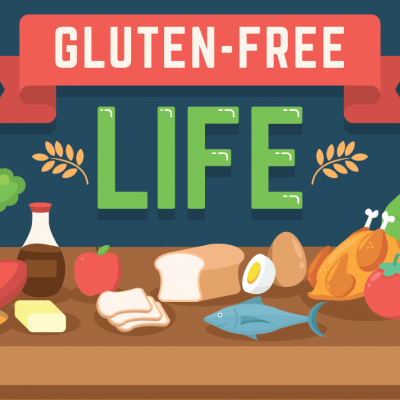Living an active lifestyle and finding time to eat a balanced diet may pose a challenge for athletes. Today, we live in a world of fast, convenience foods, which may not contain the essential nutrients needed to replenish your energy. Pair it with the ever-growing information about diet fads and sports nutrition—it can be a real struggle to figure out which type of foods are the best fit for your lifestyle.
Whether you're a sports hobbyist or a pro athlete, it's crucial to have a solid foundation of the basics of eating a balanced diet. While it's true that all of us need essential nutrients for optimal health, athletes need to be serious about proper nutrition since their bodies face a high level of stress.
Below, we listed essential nutrients that should be prioritized in your diet and foods that allow you to boost your athletic performance, improve your concentration, and fuel your energy.
Carbohydrates
The primary role of carbohydrates (or muscle glycogen) in any physical activity is to fuel energy. Just like a car needs fuel to operate, your body needs enough carbohydrates for optimal brain and muscle performance. If your diet does not contain enough carbohydrates, you'll likely have poor performance and muscle recovery.
Carbohydrates have a bad reputation, and the emergence of zero-carb diets has only mitigated the misconception that carbs are unhealthy for the body. The reason why there's a misconception is that some unused carbs can be stored as fat. For instance, simple carbs such as sucrose and glucose offer an instant energy boost but can raise blood sugar levels, which increases the risk of insulin resistance and heart attack.
What to eat - Therefore, as a sports enthusiast, it's essential to feed on good carbs. Starchy foods like wholegrain varieties are excellent sources of carbohydrates. Healthy carb sources include brown rice, brown pasta, sweet potato, couscous, vegetables, and quinoa. Top up your energy levels with a carbohydrate-based snack such as fruit & granola and honey or dried fruit and nuts.
As a rule of thumb, carbs should make up around 40% of your balanced diet.
Fats
Like carbohydrates, fats provide energy to fuel your performance, especially if you're engaging in ultra-endurance activities lasting between 6 to 10 hours. If you're engaging in a demanding activity such as hiking, triathlon, and cycling, make sure to eat foods that are rich in healthy fats because 60-70% of your energy requirements will depend on it.
What to eat – Healthy fats can be taken from oily fish such as mackerel, herring, and salmon, as well as seeds, whole eggs, avocados, and nuts. In addition, cheese, dark chocolate, and chia seeds are great post-workout snacks if you are looking for quick ways to regain your energy.
Fat consumption should be limited to 20% of total energy intake to boost overall performance. Maintaining healthy fat levels is vital to meeting the daily recommended intake of essential fatty acids and fat-soluble vitamins, including vitamins A, D, E, and K.
Vitamins
Your body requires adequate levels of vitamins to function at best. Since the body cannot produce some vitamins, a well-balanced diet should be enough to replenish your body with vitamins daily.
Several vitamins such as thiamin, niacin, and riboflavin are needed for extracting energy from the fuel sources in your diet. Women athletes are at a much higher risk of riboflavin deficiency, so it's essential to take riboflavin-rich food sources.
Additionally, exercise heightens oxidative stress on the body, which increases the need for antioxidant sources, such as vitamins C and E.
What to eat – Eating a diverse mix of fruits and vegetables is the best way to get appropriate vitamins inside your body. These food sources may come in soups, salads, smoothies, and steamed veggies.
To increase your B vitamin levels, consume yogurts, cheese, and milk, which are all great sources of protein and calcium too.
Minerals
Physical activities deplete mineral levels, affecting the body's supply of iron, potassium, sodium, and calcium. Sodium and potassium levels decline during exercise, so eating food sources rich in these minerals is essential for the endurance and strength needed to finish a physical activity.
Iron is also crucial for better performance, as it helps carry oxygen via blood to all parts of the body. If your activity requires high endurance, you need to feed your body with adequate levels of iron. Female athletes who train heavily usually need to consume more iron due to strenuous exercise and menstruation.
Calcium is essential to joint health and muscle function. In addition, athletes need to supply their bodies with calcium to prevent bone loss and osteoporosis.
What to eat – Breads, cereals, and cheese are excellent sources of sodium. Potassium-rich foods such as bananas, oranges, and potatoes are best taken before and after high-level activity.
Red meat, dark leafy greens, and fortified cereals help combat iron deficiency, but taking supplements may be advised by a dietitian. For calcium-rich sources, make sure to include low-fat dairy products such as whole milk and legumes in your diet.
Protein
Protein is usually found in everyday foods, but high levels are required for people who engage in strenuous workouts every day. In addition, protein is vital for the recovery and repair of cells and muscles, so it's best if you prioritize eating protein-rich sources, especially if you exercise regularly.
What to eat – Protein sources include fish, lean meats, beans, lentils, and poultry. Now you know why many athletes love eating hard-boiled eggs!
Water
Good hydration before, during, and after working out is necessary for optimal health and performance. Water lubricates joints, regulates body temperature, transports nutrients throughout the body, and provides energy. Make sure to stay hydrated when going outdoors. If you're golfing, wearing a golf hat keeps you protected under the sun, hence helps curb dehydration.
A good indication that you're drinking enough water is through your urine color. A pale- or light-yellow urine indicates that you're meeting your body's requirements, while a dark yellow color signals dehydration.
Closing thoughts
Whether you love hitting golf balls or dribbling a basketball, sports enthusiasts like you should maintain nutritious eating not only before and after sporting events but all the time. Combined with solid knowledge about proper nutrition, regular exercise, and active sports participation, you are bound to live a long, healthy life.
Image by Nathan Cowley from Pexels






































